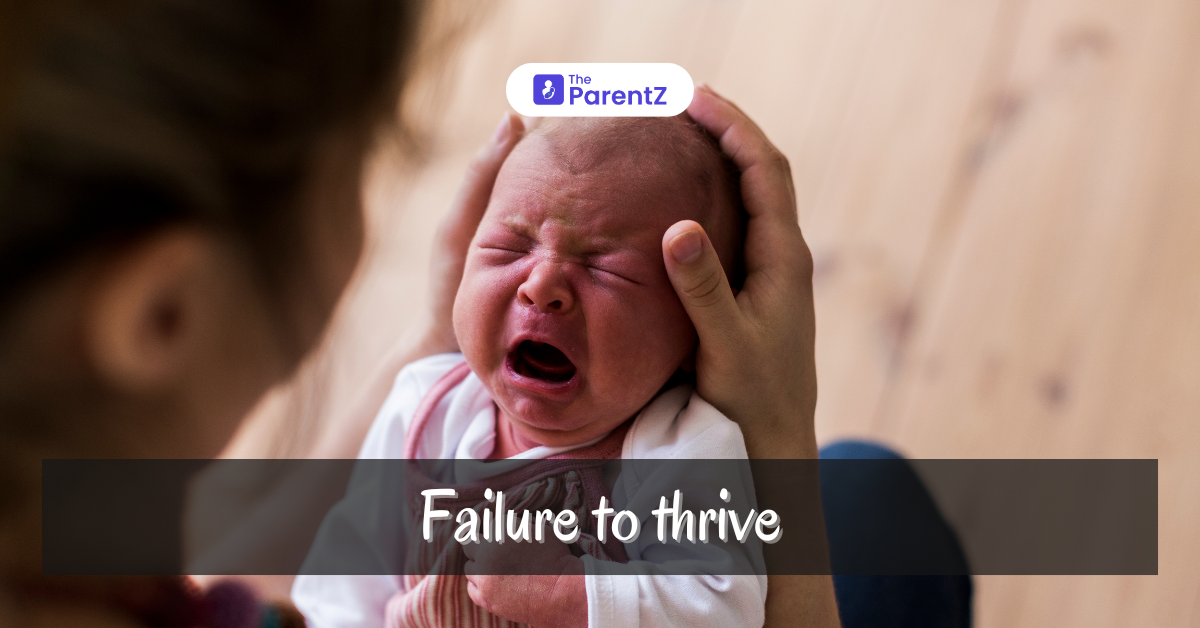What is failure to thrive?
Failure to thrive means that your baby or your infant is not gaining weight at the expected rate. There is a set pattern based on which babies and infants gain weight as is monitored by the growth chart. If your child is not gaining weight properly or starts to suddenly lose weight it may be failure to thrive.
This in itself is not a disease or disorder but points to an underlying conditions, the most common being malnutrition. Infants with failure to thrive are not gaining weight as they are not having proper nutrition for some reason. This can lead to them lacking in other attributes as height, poor development, delay in development milestones, general physical and mental development.
What causes failure to thrive?
There can be a number of reasons why your child is not gaining weight and has failure to thrive. Some common reasons include :
- Child is not getting proper nutrition. This may be due to a multitude of reasons such as incorrect breastfeeding techniques, incorrect formula feeding, not starting solid foods at an appropriate time or missing hunger cues of the baby.
- The child does not eat enough food. The child may be a picky eater who does take enough food. There can be other reasons which make it difficult for him to take food such as cleft palate or cleft lip.
- The child has conditions of the gastrointestinal tract which makes it difficult for him or her to absorb enough nutrients. These include conditions such as gastro oesophageal reflux, cystic fibrosis or inflammatory bowl disease.
- A child who has a serious infection can also develop failure to thrive.
- A child who has a parasitic infection in the body such as tapeworms or hookworms may develop failure to thrive.
- A child who has chronic disease of any organ in the body including the lungs, liver or the heart may develop failure to thrive.
- A child with metabolic syndrome can also have failure to thrive.
Is failure to thrive dangerous ?
Failure to thrive can be dangerous for your child if not caught in time and treated properly. In failure to thrive, the child does not have enough calories for proper growth. So besides not gaining the weight, the child also shows delays in other growth milestones. The child may not gain height and there is a delay in appearance of developmental milestones. A delay in mental growth on the child may present with lagging behind peers in school work. If failure to thrive is present at an older age, the child can show delayed puberty.
How is failure to thrive managed?
The first step for management of failure to thrive is to treat any underlying health conditions which may be a contributing factor. Along with this a proper diet plan may be recommended by your doctor which needs to be followed. A feeling tube can be used if your child is unable to ingest solid food or is extremely sick.
What should I know as a parent?
- Besides medical conditions, the environment of the child is also very important for proper growth. You should ensure that the environment of your house is encouraging for your child.
- The child should be protected from neglect and abuse.
- You should follow the diet plan given by a doctor and make any changes only if advised.
- You should avoid filling your child up with water or juices which will not provide enough calories for growth but make the child feel satiated.
- You should call your doctor if the child develops any new symptoms such as nausea, vomiting or suddenly begins to lose weight.
- You should make sure that you are feeding your child properly and in a safe manner.
- You should be aware if your doctor finds any medical condition which is responsible for failure to thrive in your child and ensure proper treatment.





Be the first one to comment on this story.